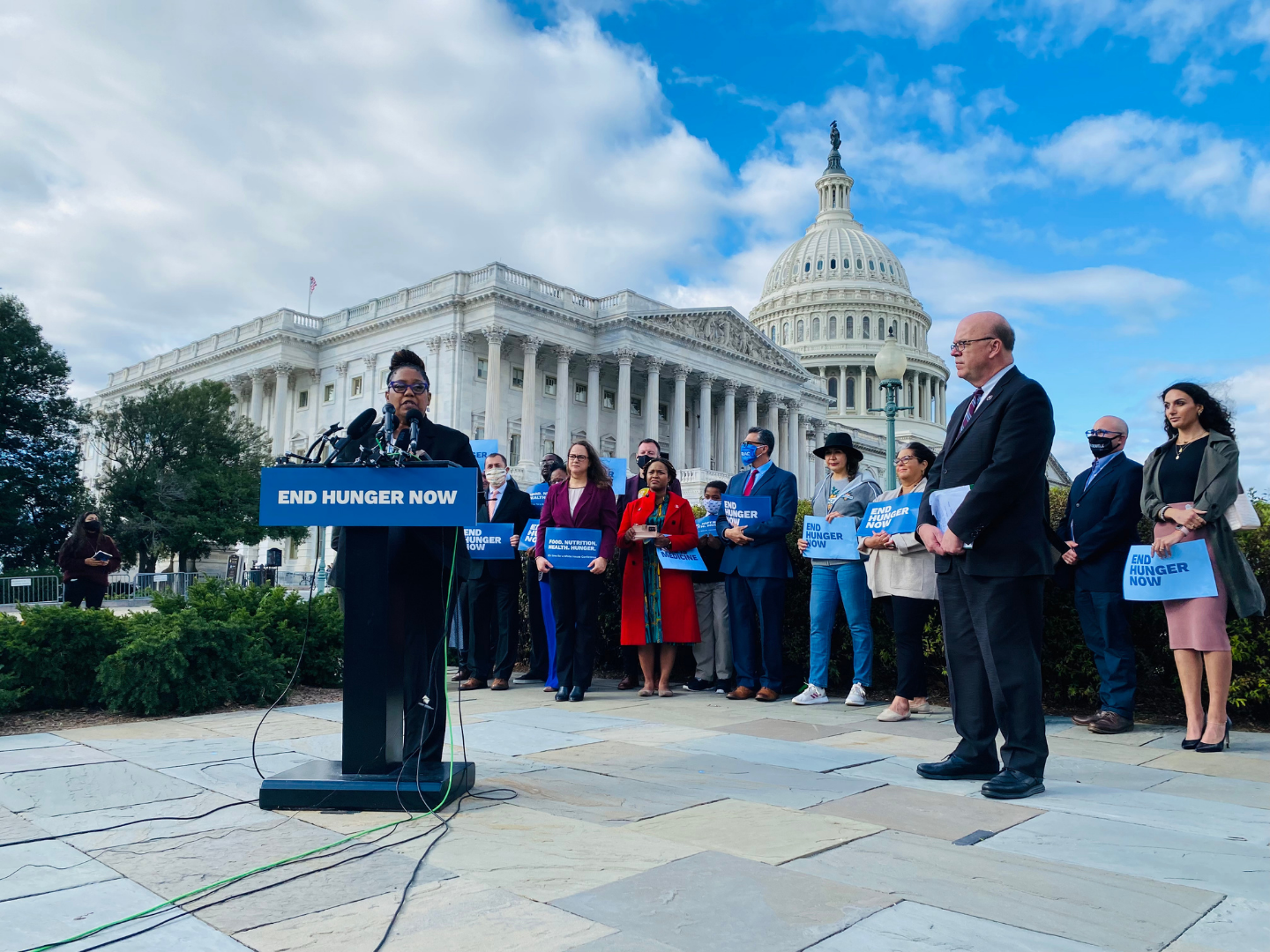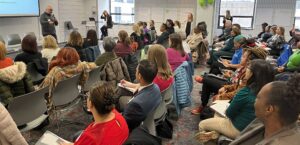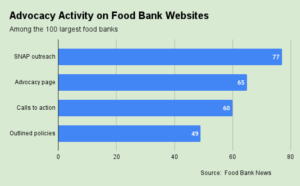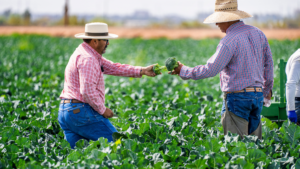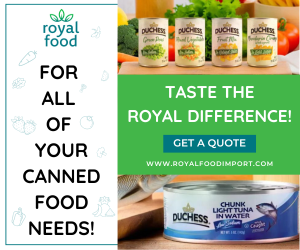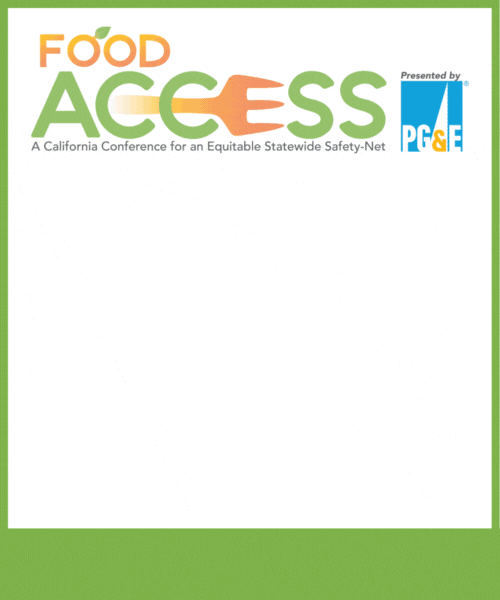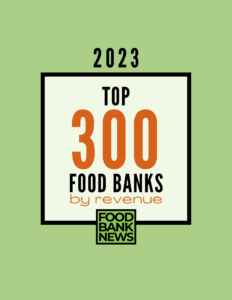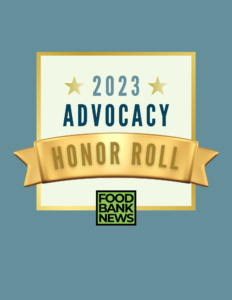When food banks follow the guidance of their clients, they often find themselves advocating about issues they hadn’t realized were so relevant to food insecurity.
Lobbying for community-oriented policing, more grocery stores and telephone-based signatures for SNAP are among the advocacy efforts some food banks are newly engaged in, thanks to input from clients with lived experience of hunger and poverty.
These clients are part of emerging leadership programs at food banks that tap into client knowledge to better guide advocacy priorities. Participants are trained to speak publicly about their experiences with hunger, granting them power, while also providing vital insights to food-bank advocates and guiding political decision-makers to change legislation.
While client-driven advocacy is a relatively new concept at food banks, its influence is growing as organizations begin to realize just how powerful and knowledgeable such voices can be. “We’re trying to give clients a toolkit, so when they see an issue in their communities, they know how to approach it and effect change,” said Adam LaRose, Director of Advocacy and Public Policy for Capital Area Food Bank in Washington D.C.
Since it started its Client Leadership Council two years ago, Capital Area Food Bank has received more than 70 inquiries into its curriculum from anti-hunger organizations, causing the food bank to think big about the potential for such programs nationwide. “We’re not only thinking about this in terms of our clients, but how we support this movement in the country to root out hunger and food insecurity,” LaRose said.

The food bank’s first cohort of 24 participants met regularly for ten months via Zoom and a few daylong convenings to discuss everything from the region’s hunger, to how the food bank operates, to policy and the American government. Clients also learned public speaking skills and coalition building, and how to navigate and work with elected officials.
At the heart of the program is the creation of each client’s “story of self,” based on the Marshall Ganz model of public narrative, which LaRose said seeks to change public perception using clients’ lived experiences, and empowers members to be proud of past and current traumas.
“This is an emotional journey. We are asking these folks to write their story of self, and they bring me to tears,” LaRose said. “We originally didn’t know how triggering this would be for them, to discuss things that are not normalized, like food insecurity, trauma, and racism.” Capital Area Food Bank now dedicates one-third of the curriculum to narrative building, acknowledging the need for adequate space and time to process emotions.
The narrative work eventually leads to discussions about how the food bank should prioritize its policy agenda. The food bank’s first cohort of client leaders identified a lack of grocery stores in certain areas of D.C. as a top issue to address. “They want and need a grocery store,” LaRose said. “This was something we were not prioritizing as a food bank from a policy perspective until we heard from these council members.”
Oregon Food Bank has also identified new policy priorities through the work of its Policy Leadership Council, launched in September 2021. The 15-member council, representing people who have experienced oppression, advised the food bank to support legislation that would stop police officers from pulling people over for small infractions, since such interactions tend to be inordinately focused on people of color. “The line that links over-policing, to mass incarceration, to poverty and hunger is not a long line, but it’s not a line we necessarily saw,” said Susannah Morgan, CEO of Oregon Food Bank.
At the Food Bank of Contra Costa and Solano in California, members of the Speaker Series program helped the food bank better understand specific barriers around accessing SNAP and how to address them. Input from Speaker Series members and current data led the food bank to realize that the biggest barrier to accessing SNAP in its service area was getting to the county office to apply. That led the food bank to successfully advocate for regional acceptance of signatures over the telephone, rather than in person.

“That was a way that we heard from our advocates that transportation was a barrier, and the solution wasn’t transportation but a way around it in getting telephonic signatures,” said Cassidie Carmen Bates, Government and Public Affairs Manager. “Now we are advocating for statewide implementation.”
Food Bank of Contra Costa and Solano’s Speaker Series program was originally 12 weeks long when it started in 2016, but pandemic burnout and subsequent retention issues have led organizers to restructure it to six weeks. The 10 to 15 participants meet virtually for two hours weekly, and upon completion, can continue to the food bank’s Community Advocacy Program to help identify and actively advocate for the 15 to 30 bills on the food bank’s annual legislative agenda. Bates said approximately 60 alumni are now an integral part of every aspect of the food bank’s policy and priority-setting process.
“The main objective is that each individual formulates, writes and presents their formal hunger story. It’s their why, their spark, what motivates them to advocate for hunger,” Bates said. “This is one of our main community-based programs to bring together community members who want to learn to become hunger fighters.”
Client leadership programs can also be instrumental in more traditional types of food-bank lobbying. The eight to 10 participants of the Community Advocates Program at New York’s Food Bank of the Southern Tier, which began in 2016, meet weekly for 12 weeks, discussing public speaking and breaking down stereotypes, while telling their personal stories.
Participants also receive training in anti-racism, anti-oppression, and in the root causes of poverty and food insecurity, which are built into our socio-economic system, said Lyndsey Lyman, Advocacy and Community Empowerment Manager. “We are preparing folks to take on leadership in their community and change the narrative about who experiences food insecurity and why,” Lyman said.
The food bank takes participants to Washington, D.C. to speak to legislators, so they can hear directly from those who benefit from SNAP. “They were finally able to say, ‘I see the importance of maximizing the benefits of SNAP,’ and nationally SNAP benefits increased, so that was successful,” Lyman said. The food bank also created a new advocacy agenda that includes topics related to housing and health care, which were deemed by the Community Advocates as essential to their hunger battle.
Compensation for client leaders is common to all the programs. Food Bank of the Southern Tier offers $30 Visa gift cards per two-hour session, while Capital Area Food Bank offers the equivalent of $20 per hour, totaling $100 for about five hours of work monthly. Food Bank of Contra Costa and Solano pays a $25 gift card for every session, which equates to $150 over six sessions, plus additional stipends for graduating and speaking activities.
“We must pay clients for their time,” said LaRose of Capital Area. “We can’t act as a community like their time is not important. They have multiple jobs, families, and a living wage stipend has to be part of it. We also have to make that clear to the organizations we’re raising money from.”
By listening to the very people they serve, these food banks are amplifying marginalized voices and giving them agency over their experience to boost confidence, reduce shame, and encourage community advocacy, while making a difference at the ground level.
“I’m proud that we can involve our advocates in the legislative process, to share insight they have in being a food bank client or interacting with SNAP or WIC, and how it intersects,” Bates said. “This program is enhancing their professional development and furthering their speaking skills, so they see beyond food advocacy that these skills carry on.” — Annie Sherman
Annie Sherman is a freelance writer in Rhode Island, covering food culture, the environment, business and travel, and authored “Legendary Locals of Newport.”
CAPTION ABOVE: Kim Harris, a member of the Capital Area Food Bank’s Client Leadership Council, speaking outside the U.S. Capitol, alongside U.S. Rep. Jim McGovern, D-Mass., in October 2021 during a press conference urging the Biden Administration to host a White House conference on ending hunger.
Like what you’re reading?
Support Food Bank NewsConnect with Us:
